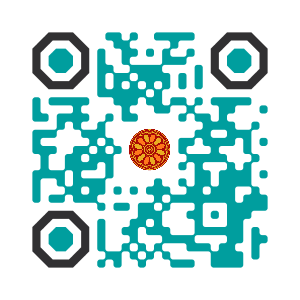
:: International Transaction Journal of Engineering, Management, & Applied Sciences & Technologies
http://TuEngr.com

ISSN 2228-9860
eISSN 1906-9642
CODEN: ITJEA8
FEATURE PEER-REVIEWED ARTICLE
Vol.11(15) (2020) |
-
Meditational Effects of Personal Strategies in Relationship of Causes and Outcomes of Occupational Stress: A Survey of Judiciary in KP Pakistan
 Tehseen Ahmad, Qamar Afaq Qureshi (Department of Public Administration, Institute of Political and Administrative Studies, Gomal University D.I. Khan, KP, PAKISTAN).
Tehseen Ahmad, Qamar Afaq Qureshi (Department of Public Administration, Institute of Political and Administrative Studies, Gomal University D.I. Khan, KP, PAKISTAN).
Nida Habib (Department of Business Administration, Gomal University, D.I. Khan, KP, PAKISTAN).
Irfan Ullah (School of Management and Economics, Beijing Institute of Technology, CHINA).
Disciplinary: Public Administration and Management Sciences.
DOI: 10.14456/ITJEMAST.2020.301
Keywords: Job stress reduction; Individual Stressors; Collective stressors; Khyber Pakhtunkhwa; Depression; Absenteeism.
AbstractAll the employees working in the public sector organizations have to face occupational stress in or the other way. The goal of this research paper is to find out the mediating role of personal strategies in the relationship of causes (individual stressors & collective stressors) and outcomes (depression, absenteeism, & trauma, etc) of occupational stress in the judiciary (judges & advocates) in Khyber Pakhtunkhwa (KP) Pakistan. A survey has been conducted using the samples from all the twenty-five districts of Khyber Pakhtunkhwa. Two hundred and fifty-two judges and advocates completed a constructed and standardized questionnaire. Data was analysed through software SPSS?20.0. The results showed that personal strategies mediate the relationship between the causes and outcomes of occupational stress. It also identifies that personal strategies play a significant role while reducing the level of stress in the judges and advocates.Paper ID: 11A15M
Cite this article:
Ahmad, T., Qureshi, Q.A., Habib, N., Ullah, I. (2020). Meditational Effects of Personal Strategies in Relationship of Causes and Outcomes of Occupational Stress: A Survey of Judiciary in KP Pakistan. International Transaction Journal of Engineering, Management, & Applied Sciences & Technologies, 11(15), 11A15M, 1-8. http://doi.org/10.14456/ITJEMAST.2020.301
References:
Ahmad, T., Qureshi, QA., & Ahmad, I. (2017). Occupational stress among workers in developing countries. Gomal Journal of Medical Science, 15(4),87-190.
Beheshtifar, M., Hoseinifar, H., & Moghadam, M. (2011). Effect procrastination on work-related stress. European Journal of Economics, Finance and Administrative Sciences, 38, 59-64.
Coolican, H. (2017). Research methods and statistics in psychology. Psychology Press.
Ile, C. M., & Ementa, C. N. (2015). Appraisal of Information and Communication Technology Courses in Business Education Programme of Universities in Southeast Nigeria. International Journal of Higher Education, 5(1), 200.
Iqbal, M. (2013). Mediational effect of stress coping strategies between workplace stress and organizational performance: A case study of air traffic controllers of Pakistan. Cent Eur J Immunol, 1, 42-56.
Jackson, L., & Rothmann, S. (2006). Occupational stress, organisational commitment, and ill-health of educators in the North West Province. South African Journal of Education, 26(1), 75-95.
Jayashree, R. (2010). Stress management with special reference to public sector bank employees in Chennai. International Journal of Enterprise and Innovation Management Studies, 1(3), 34-35.
Kannan, P., & Suma, U. (2015). Managing Stress among Co-Operative Bank Employees in Palakkad district. International Journal of Scientific Engineering and Applied Science, 1(7), 22-24.
Khan, F., & Ali, U. (2013). A cross-cultural study: Work stress as a mediator between job satisfaction and intention to quit. International Journal of Business and Social Science, 4(9).
Khan, S., & Khan, R. A. (2017). Chronic stress leads to anxiety and depression. Ann Psychiatry Ment Health, 5(1), 1091.
Kim, H.-Y. (2013). Statistical notes for clinical researchers: assessing normal distribution (2) using skewness and kurtosis. Restorative dentistry & endodontics, 38(1), 52-54.
Kishori, B., & Vinothini, B. (2016). A Study on Work Stress Among Bank Employees in State Bank of India with Reference to Tiruchirappalli. International Journal for Innovative Researchs, 2, 12.
Other issues:
Vol.11(14)(2020)
Vol.11(13)(2020)
Vol.11(12)(2020)
Vol.11(11)(2020)
Vol.11(10)(2020)
Vol.11(9)(2020)
Vol.11(8)(2020)
Vol.11(7)(2020)
Vol.11(6)(2020)
Vol.11(5)(2020)
Vol.11(4)(2020)
Vol.11(3)(2020)
Vol.11(2)(2020)
Vol.11(1)(2020)
Archives
Call-for-Papers
Call-for-Scientific Papers
Call-for-Research Papers: ITJEMAST invites you to submit high quality papers for full peer-review and possible publication in areas pertaining engineering, science, management and technology, especially interdisciplinary/cross-disciplinary/multidisciplinary subjects.
To publish your work in the next available issue, your manuscripts together with copyright transfer document signed by all authors can be submitted via email to Editor @ TuEngr.com (no space between). (please see all detail from Instructions for Authors)
Publication and peer-reviewed process:
After the peer-review process (4-10 weeks), articles will be on-line published in the available next issue. However, the International Transaction Journal of Engineering, Management, & Applied Sciences & Technologies cannot guarantee the exact publication time as the process may take longer time, subject to peer-review approval and adjustment of the submitted articles.